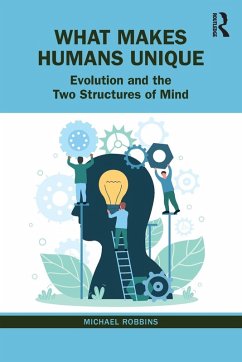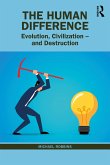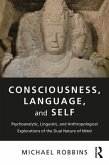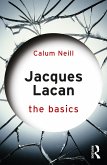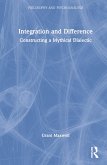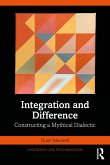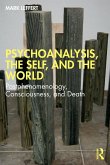Through an integrated multi-disciplinary theory, Michael Robbins proposes that the human mind consists of two mental structures: the one we share with other animate creatures and a capacity for reflective representational thought which is unique.
As an alternative to Freud's model of the human mind as structured by the id, ego, and superego, this book contends that the prolonged period of post-natal immaturity - otherwise known as neoteny - which is specific to humans, gives rise to reflective representational thought that in turn allows for the acquisition of complex knowledge. Robbins examines how Freud's conception of the human mind was limited by his ignorance of the related disciplines of sociology, primatology, cultural anthropology, and most notably evolution, which were then in their infancy, to explore the implications of the non-unitary nature of the human mind for us as individuals, as a society, and for our future as a species.
Drawing on a broad range of influences from psychoanalysis to anthropology, biology, psychology, sociology, and politics, this book will be of interest to students and scholars of these disciplines alike.
As an alternative to Freud's model of the human mind as structured by the id, ego, and superego, this book contends that the prolonged period of post-natal immaturity - otherwise known as neoteny - which is specific to humans, gives rise to reflective representational thought that in turn allows for the acquisition of complex knowledge. Robbins examines how Freud's conception of the human mind was limited by his ignorance of the related disciplines of sociology, primatology, cultural anthropology, and most notably evolution, which were then in their infancy, to explore the implications of the non-unitary nature of the human mind for us as individuals, as a society, and for our future as a species.
Drawing on a broad range of influences from psychoanalysis to anthropology, biology, psychology, sociology, and politics, this book will be of interest to students and scholars of these disciplines alike.
'Dr. Robbins offers a remarkable psychoanalytic theory of the structures of mind replacing Freud's tripartite model that incorporates findings from evolutionary biology and primatology. While mankind shares a primordial mind with other animals, the difference is the acquisition of reflection, an ability put on the map by John Locke. It is the ability to speak and to reflect that creates the power to heal.'
Henry Lothane, clinical professor of Psychiatry Icahn School of Medicine
'Distinguishing the different roles of primordial consciousness and abstract representational thought, this book highlights the limitations of Freud's model of mental structures and conscious and unconscious mind and proposes a different model. Robbins explores the origins of the capacity to reflect on one's mind that distinguishes humans from other species. This book is an intellectual tour de force that integrates psychology and psychoanalysis with neurobiology, linguistic and other sciences: a must read for psychoanalysts and for all readers interested in the deepest dimensions of "homo sapiens".'
Riccardo Lombardi, MD, author of Body-Mind Dissociation and Formless Infinity
Henry Lothane, clinical professor of Psychiatry Icahn School of Medicine
'Distinguishing the different roles of primordial consciousness and abstract representational thought, this book highlights the limitations of Freud's model of mental structures and conscious and unconscious mind and proposes a different model. Robbins explores the origins of the capacity to reflect on one's mind that distinguishes humans from other species. This book is an intellectual tour de force that integrates psychology and psychoanalysis with neurobiology, linguistic and other sciences: a must read for psychoanalysts and for all readers interested in the deepest dimensions of "homo sapiens".'
Riccardo Lombardi, MD, author of Body-Mind Dissociation and Formless Infinity

